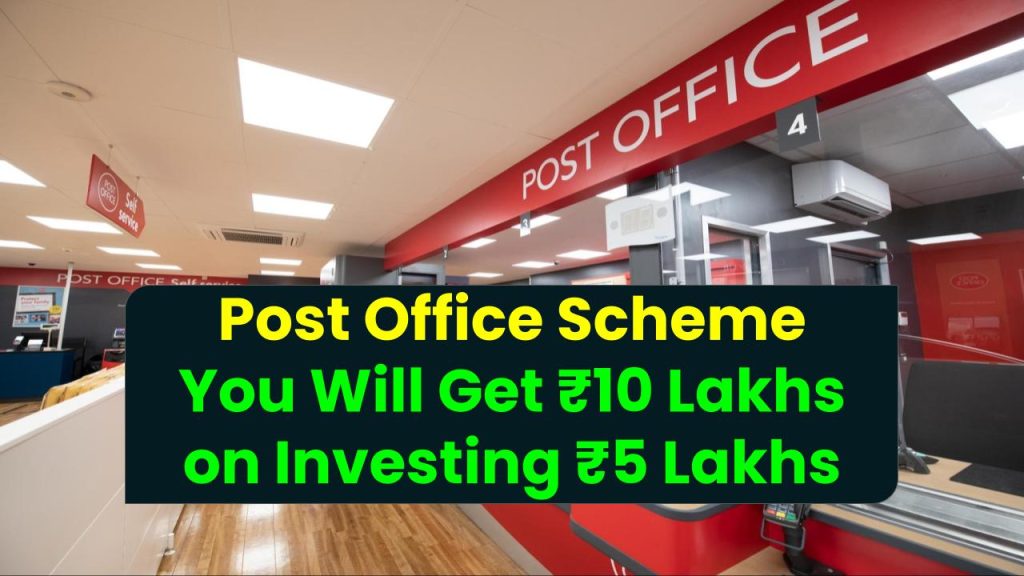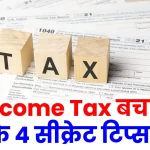
If you’re looking for a safe and guaranteed way to double your money, the Post Office Kisan Vikas Patra (KVP) might be just what you need. This government-backed savings scheme offers a fixed return of 7.5% per annum, and under the current rate, your investment will double in just 115 months — that’s 9 years and 7 months.
In today’s unpredictable financial market, having a scheme that offers security, fixed returns, and the power of compounding is a smart move — especially for risk-averse investors, retirees, and long-term savers.
Post Office KVP Scheme
| Feature | Details |
|---|---|
| Scheme Name | Kisan Vikas Patra (KVP) |
| Issuer | India Post (Govt. of India) |
| Interest Rate (Q1 FY 2024-25) | 7.5% per annum (compounded annually) |
| Maturity Period | 115 months (9 years, 7 months) |
| Amount Doubles | ₹5 lakh becomes ₹10 lakh in 115 months |
| Minimum Investment | ₹1,000 |
| Maximum Limit | No upper limit |
| Risk Level | Low (Government-backed) |
| Tax Benefits | No tax deduction under Section 80C; interest taxable |
| Official Website | India Post |
If you’re someone who values security, simplicity, and fixed returns, the Post Office Kisan Vikas Patra is a dependable investment option. With the assurance of your money doubling in 9 years and 7 months, it’s a great fit for building long-term wealth without the risk of market fluctuations.
While it doesn’t offer tax benefits, it makes up for it through guaranteed returns, easy accessibility, and government backing — all essential for a secure financial future. Just remember to weigh tax implications and align the scheme with your investment horizon and goals before making the move.
What is Kisan Vikas Patra (KVP)?
Kisan Vikas Patra is a small savings scheme introduced by the Indian government through India Post to encourage long-term savings. Initially designed for farmers, it’s now available to all Indian citizens. The main appeal of KVP lies in its guaranteed return — you invest once, and your money doubles after a fixed period.
Unlike mutual funds or stocks, KVP offers predictability and safety, making it ideal for conservative investors.
see also: NSC vs FD vs Lumpsum: Where to Invest ₹1,00,000 for 5 Years
How Does Your Money Double in the KVP Scheme?
Let’s break it down with a simple example:
- Investment Amount: ₹5,00,000
- Interest Rate: 7.5% per annum (compounded annually)
- Maturity Period: 115 months = 9 years and 7 months
- Maturity Value: ₹10,00,000
This means if you invest ₹5 lakh today, you’ll receive ₹10 lakh after the maturity period — no additional deposits required. This is based on the power of compound interest and the current fixed rate.
Features & Benefits of KVP Scheme
1. Guaranteed Doubling of Investment
Your investment is safe and backed by the government. The current interest rate ensures your money doubles over time without market fluctuations.
2. No Market Risk
Unlike equities or mutual funds, KVP is not affected by market volatility. Your capital and interest are protected.
3. Flexible Purchase Options
- Available at all post offices and select nationalized banks.
- Can be purchased individually, jointly, or for a minor.
4. Nomination & Transfer Facility
- Nominee can be added at the time of investment.
- Certificates can be transferred between individuals or branches.
5. No Maximum Limit
Investors can invest as much as they want (in multiples of ₹1,000). There’s no upper limit, which is rare among small savings schemes.
Tax Implications of KVP
- Interest earned is taxable under “Income from Other Sources”.
- There is no TDS (Tax Deducted at Source).
- KVP does not offer deductions under Section 80C.
If you’re a high-income individual, you may want to compare net post-tax returns with other investments like PPF or National Savings Certificate (NSC).
How to Invest in KVP – Step-by-Step Guide
Step 1: Visit the Nearest Post Office
Carry your Aadhaar card, PAN, and passport-sized photo.
Step 2: Fill out the KVP Application Form
You can download the form from the official India Post website or get a physical copy at the branch.
Step 3: Submit KYC Documents
KYC is mandatory. Ensure your PAN is linked with your postal savings account for high-value transactions.
Step 4: Make the Payment
Payment can be made via cash, cheque, or demand draft. Once accepted, you’ll receive either a physical certificate or e-KVP.
KVP vs Other Post Office Savings Schemes
| Feature | KVP | NSC | PPF |
|---|---|---|---|
| Interest Rate (2024-25 Q1) | 7.5% | 7.7% | 7.1% |
| Lock-in Period | 115 months | 5 years | 15 years |
| Tax Benefits | No 80C | 80C deduction | 80C + tax-free interest |
| Safety | Govt-backed | Govt-backed | Govt-backed |
| Target Investor | Long-term capital doubler | Tax-saving investor | Retirement corpus builder |
KVP is great if you want to double your money without worrying about market risks or long lock-ins like PPF.
Who Should Invest in KVP?
Kisan Vikas Patra is ideal for:
- Retirees looking for fixed income over the long term
- Parents saving for their child’s future education
- Risk-averse investors preferring capital protection
- Individuals without a requirement for tax deduction under Section 80C
It’s especially useful if you’re building a long-term financial cushion and don’t want to worry about market ups and downs.
see also: Post Office Scheme Really Give Interest of ₹41,478 on ₹1 Lakh? Let’s Find Out
Post Office KVP Scheme FAQs
Q. Can I withdraw KVP early?
Yes, but only under certain conditions like the death of the holder or on court order. Premature withdrawal is allowed after 2.5 years from the date of investment.
Q. Is there any tax exemption in KVP?
No. Interest earned on KVP is fully taxable, and you won’t get any Section 80C deduction.
Q. Can I invest in KVP online?
Currently, KVP is not available for online purchase. You’ll need to visit a post office or authorized bank branch in person.
Q. Is KVP better than FD?
KVP offers similar or higher returns than many fixed deposits with government-backed safety and guaranteed doubling, but doesn’t offer monthly interest payouts like FDs.
Q. Can NRIs invest in KVP?
No, Non-Resident Indians (NRIs) are not allowed to invest in Kisan Vikas Patra.











